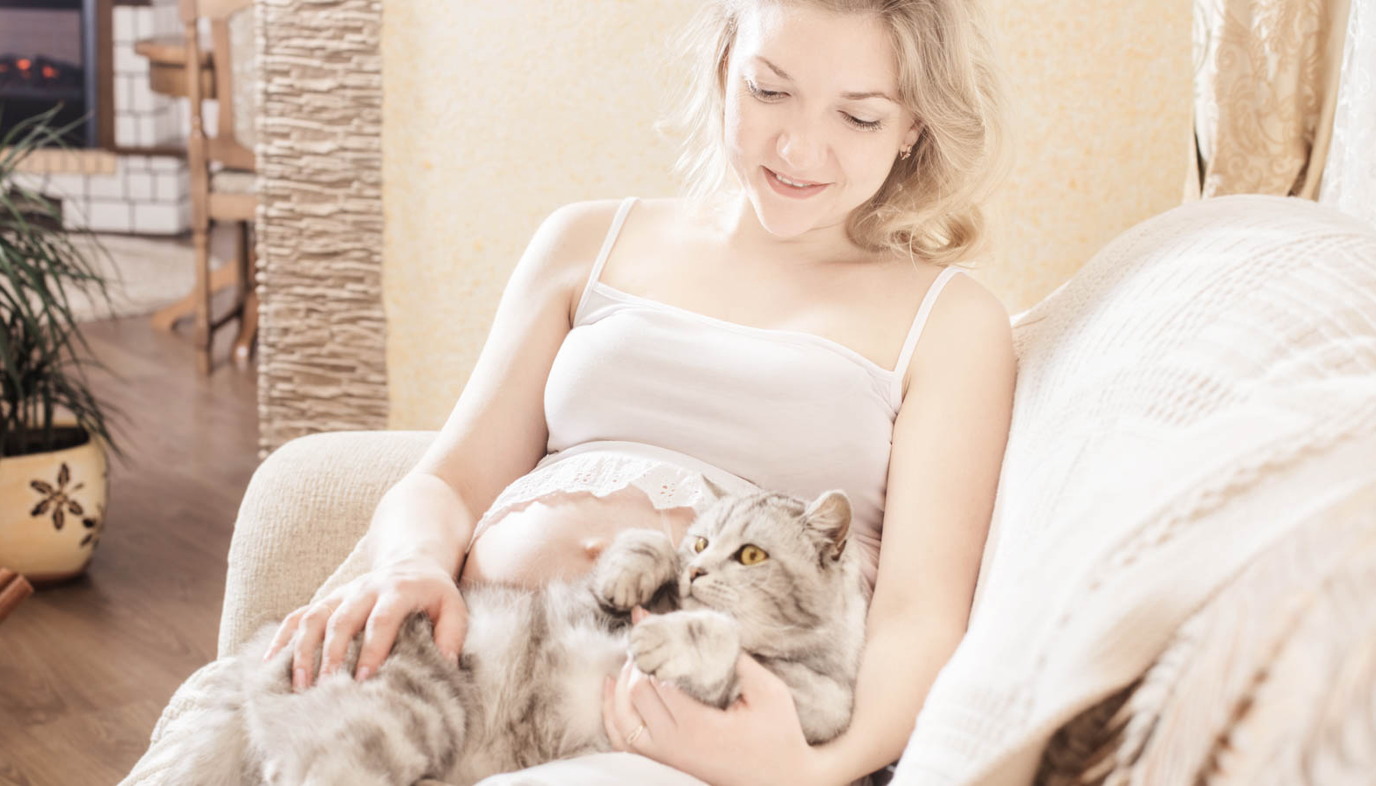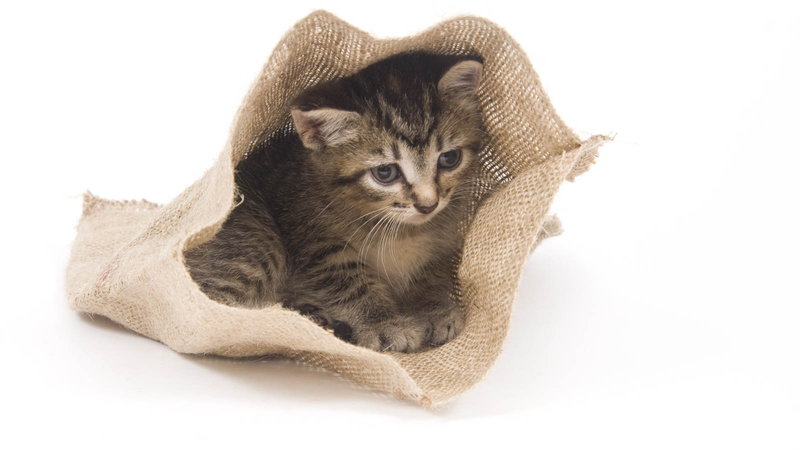
If you are pregnant, you have probably heard that you should not change cat litter during your pregnancy. You may be wondering why. Changing cat litter puts you at risk for contracting an infection called toxoplasmosis. There are several ways that a pregnant woman could contract toxoplasmosis, but cats are known to be common carriers of the infection. Pregnant women are advised to not change cat litter if at all possible.
What Is Toxoplasmosis?
Toxoplasmosis, caused by the parasite Toxoplasma gondii, is generally a mild infection with flu-like symptoms. Many adults have the infection and never even realize it. If you have been infected with toxoplasmosis prior to getting pregnant, you have probably developed immunity to it. Toxoplasmosis is only a danger to your baby if you have an active infection during your pregnancy. Consequently, if you have had it before getting pregnant, you will most likely not develop the infection again.
Cats are carriers of the parasite that causes toxoplasmosis. The parasite lives inside of the cat’s intestines and is passed into their feces. It is more commonly found in cats that are allowed outside that might eat contaminated rats or mice. Changing cat litter may expose you to the parasite that causes toxoplasmosis. It is also found in raw meats or unwashed root vegetables.
Toxoplasmosis and Pregnancy
If a woman is infected with toxoplasmosis during her pregnancy, her baby is at risk of being infected as well. About 40 percent of babies of mothers infected with toxoplasmosis during pregnancy will also be infected. The effects of the toxoplasmosis are mild to the mother but may cause miscarriage, congenital defects, damage to the eyes, brain, or other problems. Many doctors screen women during their first prenatal visit for this infection, but it is not always routinely done. If you own a cat and are concerned about having the infection, talk to your healthcare provider about your concerns.
Changing Cat Litter and Taking Care of Your Cat During Pregnancy?
If you have a cat, you may be concerned about how to take care of her during your pregnancy.
Do Not Change Cat Litter
It is best if you can have somebody that is not pregnant change your cat’s litter box. If you do not have somebody to help with this or if a situation occurs where you need to change your cat’s litter box, use gloves and a mask, and wash your hands thoroughly with soap and water when you are done. Changing cat litter daily may help cut down your chances of being infected.
Feed Your Cat Canned or Dry Cat Food
Do not feed your cat table food or undercooked meats. Raw meats may contain the parasite that causes toxoplasmosis
Keep Your Cat Indoors
Cats that go outside are more likely to contract the parasite that causes toxoplasmosis. Eating mice or other small animals containing the parasite is a common way that cats acquire the parasite.
Do Not Take in a New Cat or a Stray Cat
If you are pregnant, this is not the best time to take in a new cat. Stray cats may be more likely to carry the parasite.
Wash Your Hands with Soap and Water After Handling Your Cat
You are probably not going to get infected just from touching or playing with your cat, but it is a good idea to wash your hands after handling your cat.
Other Tips for Avoiding Toxoplasmosis During Your Pregnancy
Toxoplasmosis can also be contracted from soil that has been contaminated or from eating or handling raw meat.
Wear Gloves When You Garden
If you have a garden or are going to be touching dirt or soil, wear gloves. Wash your hands with soap and water when you are done.
Wash Your Hands After Handling Raw Meat
Wash your hands with soap and water after handling meat. Be sure to wipe down any counters, kitchen utensils, or handles that you might have touched with a disinfectant.
Don’t Eat Raw Meats
Make sure that you cook all meats thoroughly. Do not eat undercooked or pink-colored meat.


